Training sessions are approximately three hours in duration. Full-day sessions are also available upon request.
The full costs of sessions is $1375 for a 3-hour half day or $1860 for a 6-hour full day, but we have worked with the Department of Education and Early Childhood Development to cover these costs through the Climate Education Capacity Building Grants and from other funders. Ideally, schools will be able to offer a minimum of $300 up to the full cost of a session. Since we know many schools do not have extra funding, we have allocated extra staff time to help schools find additional funds if the cost is too prohibitive. And remember, the more one school is able to chip in, the more sessions we can afford to do over the entire school year. Please be in touch for any financial questions.

Your Environmental Trust Fund At Work!
If you are interested in booking a session, please fill out this form and we will contact you shortly!
Contact:
Phone: 506-855-4144
- Posted by Annika Chiasson
Book your session today!
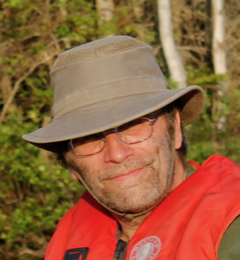
Aster Group: Environmental Services Cooperative
Roland Chiasson is a working member of the Aster Group, a N.B. cooperative that works on environmental solutions. He has worked with Parks Canada, as a nature interpreter, and has also taught English and Science classes to high school students. He also worked with Nature NB, as a Conservation Biologist and was also the former education manager for Cape Jourimain Nature Centre. "Resources for Rethinking", a web-based source for environmental curriculum materials, has used his skills to review and add to their many educational activities. Roland is always enthralled with the natural sights and sounds during his woodland wanderings.
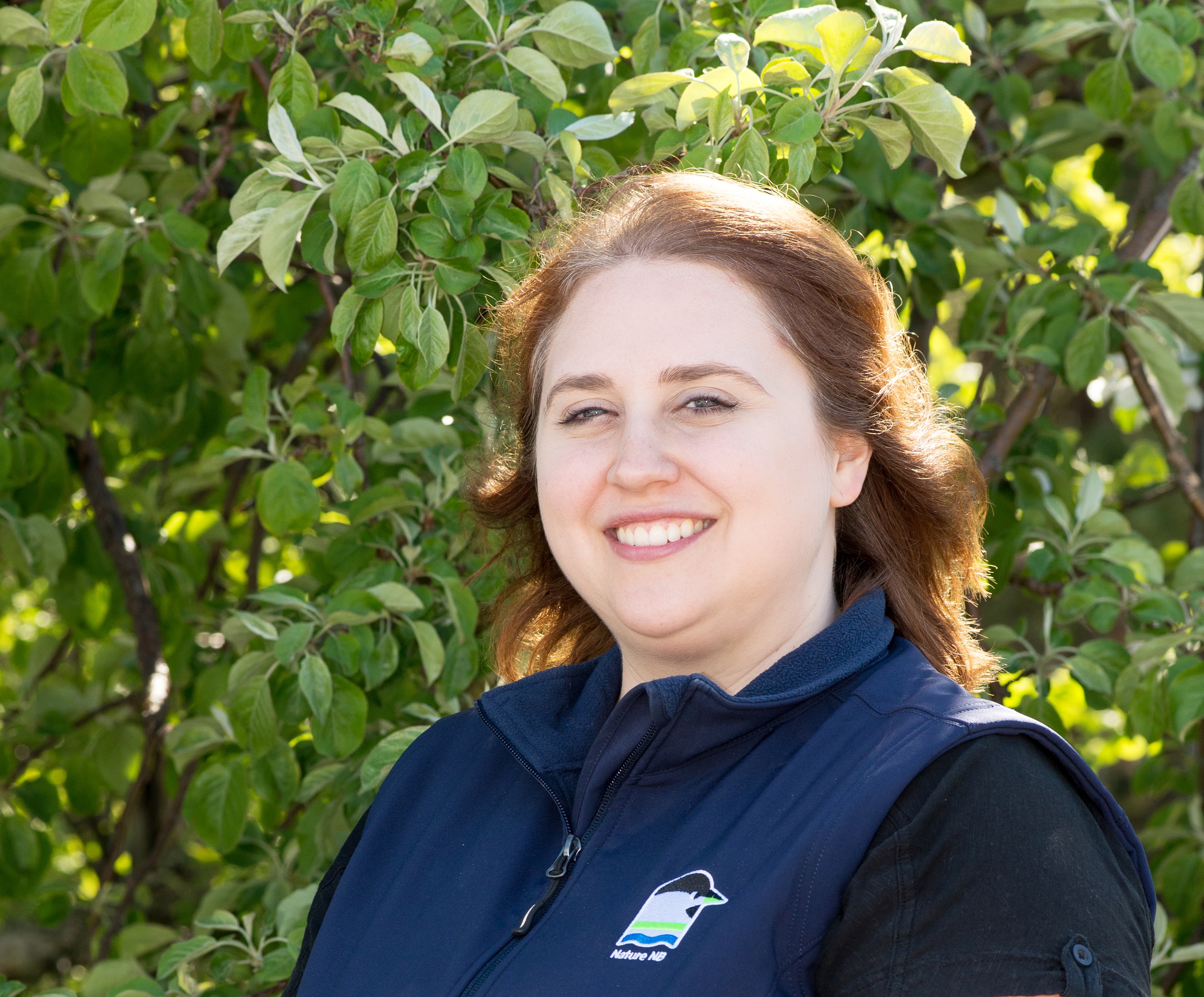
Nature NB
Melissa Fulton is the Programs Coordinator for Nature NB. Melissa has over 9 years experience in outdoor nature education in New Brunswick. Her areas of expertise are nature interpretation, pollination, and ecology, with a special fondness for insects. Melissa loves to go outside for the fresh air, exercise, and a sense of calmness that only nature can provide.
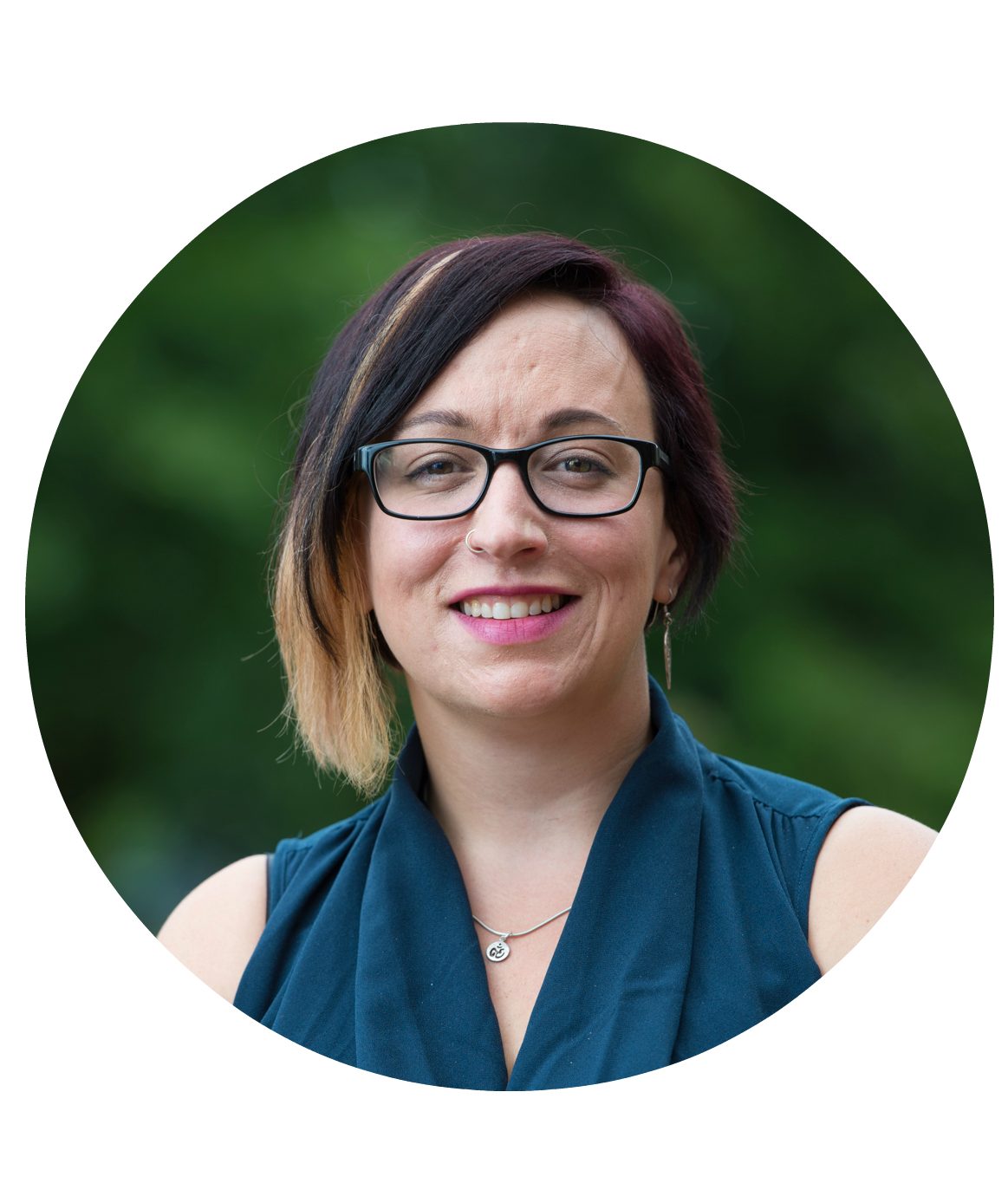
Danielle Smith (on leave)
Sustainability UNB
Danielle Smith is the Sustainability Coordinator with the UNB Sustainability Program. She brings a wide range of knowledge on Monarchs, Bird Identification, Wildlife Ecology, Forest Ecology, Sustainability, NB Wildlife, Wildlife Adaptations, Wildlife Friendly Gardening, Pollinators and Composting. Nature allows her to always be learning. It is so vast and changing that she is always discovering new and wonderful things.
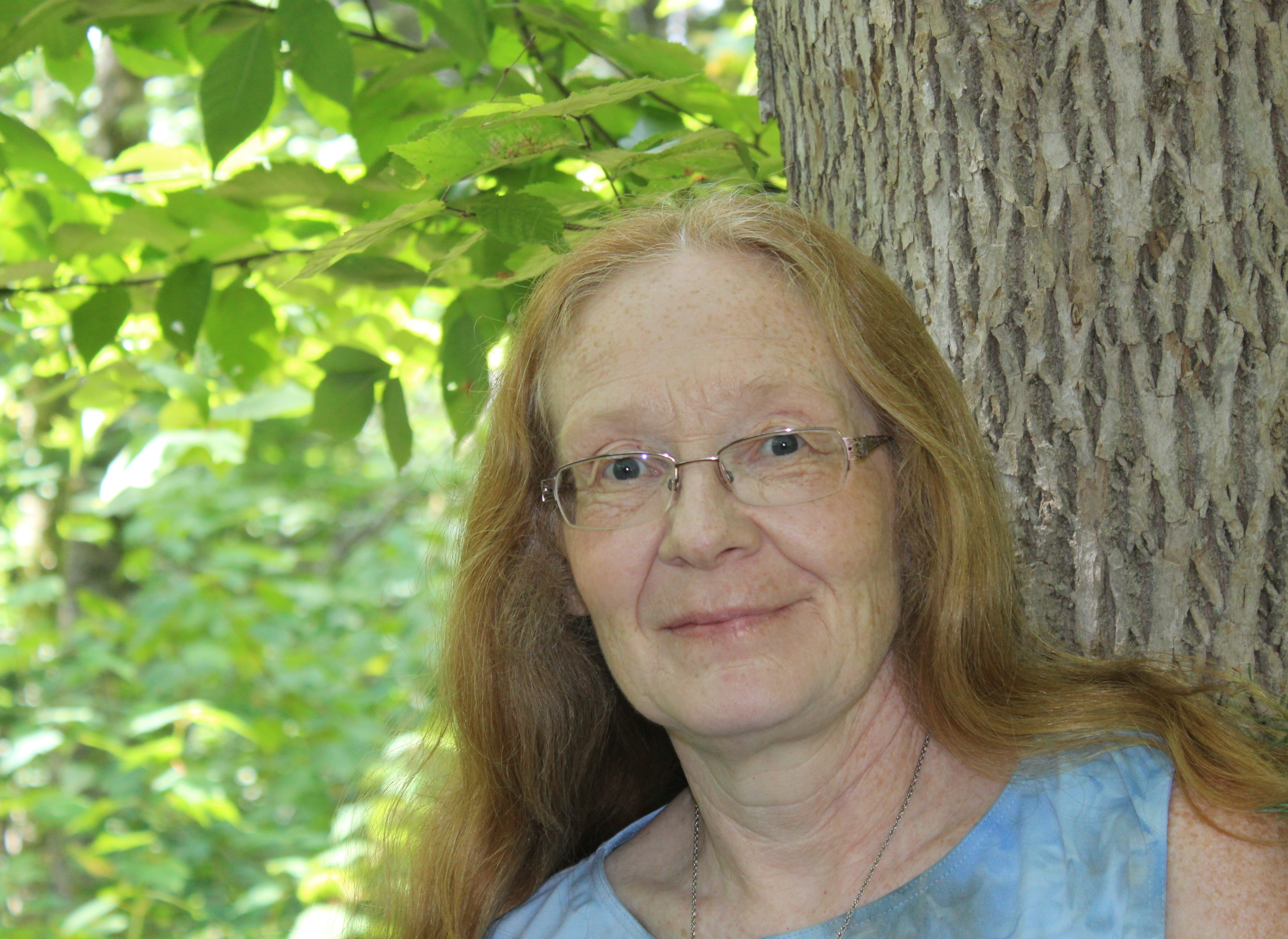
Conservation Council of New Brunswick
Nadine has lived in New Brunswick for over 23 years. She works for Conservation Council of New Brunswick as coordinator of the Learning Outside project. Nadine has a PhD in hardwood tree ecology and has been involved in nature education in various forms for over 20 years (from school visits and nature walks to university teaching). Her areas of expertise include outdoor nature education, general ecology, plant ecology, native plants, invasive species, climate change, wildlife friendly gardening, and phenology. Nadine heads outside to feel grounded, refreshed and re-energized, and to see what her non-human neighbours are up to.
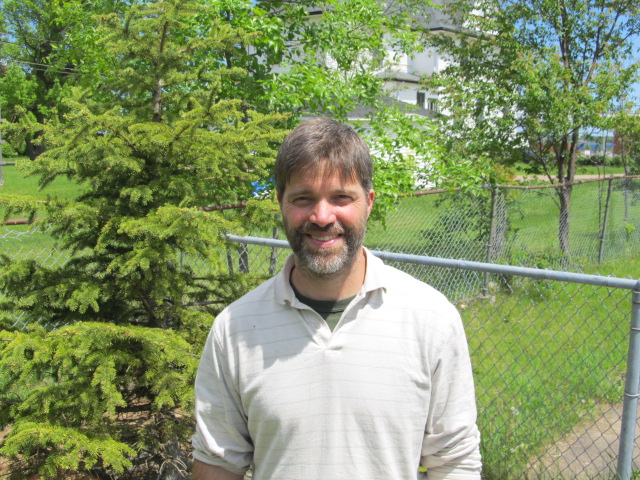 Serge LaRochelle
Serge LaRochelleSerge LaRochelle is from Saint-Boniface in Manitoba and now lives in Cocagne, New Brunswick. Serge works for the Pays de Cocagne Sustainable Development Group on ecological restoration and biodiversity projects. He completed a Masters program in Natural Resources Management at the University of Manitoba. He is interested in ecological gardening, composting, tree planting and establishing natural spaces. Serge recognizes the learning opportunities that arise when youth go out of the classroom to discover nature around the school yard.
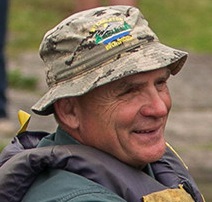 Ian Smith
Ian SmithIan Smith is a Parks NB Program Manager, Grandfather, Outdoor Educator, Outward Bound Canada Instructor. He loves sharing nature with “soft-shelled turtles”.
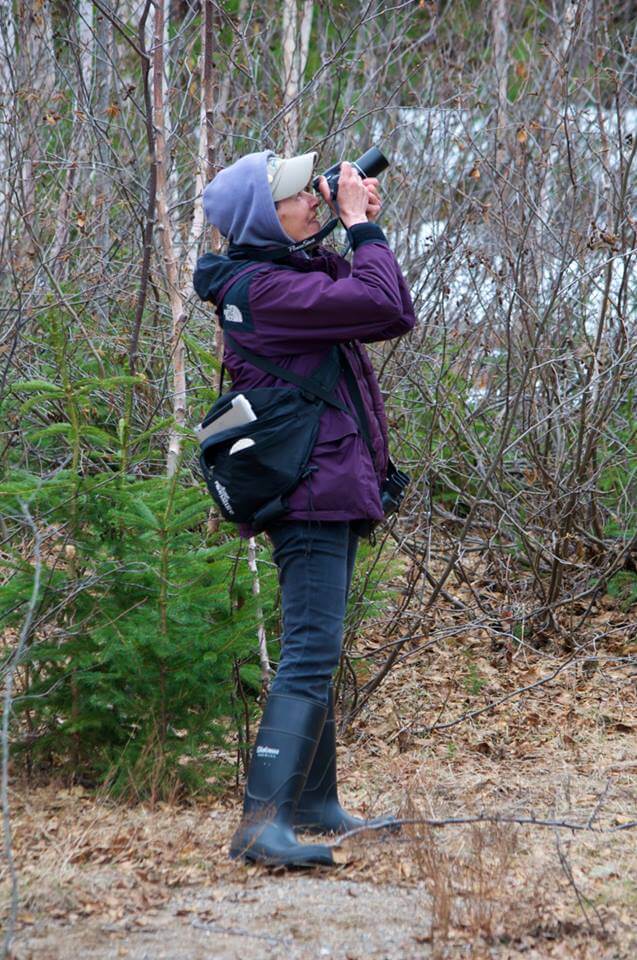 Janet Doucet
Janet DoucetDaly Point Nature Reserve
Janet Doucet is the Program Coordinator at the Daly Point Nature Reserve in Bathurst. She studied biology at Acadia University, and loves sharing her passion for nature. When not working on a new project, she can be found cycling, kayaking or walking her dog, camera in hand, looking to capture the marvels and mysteries that abound around us!
1. What are the benefits of learning/teaching outside?
2. What can I teach outside?
3. What about weather?
4. What about perceived risks/dangers?
5. How do I ensure that my students are learning outside?
6. How do I get my principal/teachers/parents on board?
7. Do you work with children under 5?
8. How long are your sessions?
9. How many people can be included in a session?
10. Is there a cost?
11. Do you do school yard identification of animals and plants?
12. Do you include children with mental and physical handicaps?
13. Where do you offer your sessions?
14. Do you do follow-up workshops?
1. What are the benefits of learning/teaching outside?
All the senses are stimulated, thereby increasing the capacity to learn. Recent studies document the many ways in which learning outside and being in nature contribute to mental, physical and emotional health, as well as positive social development, greater self-confidence, and improved academic outcomes.
Here are a few resources:
Outdoor Education - Research Summary
https://www.uwsp.edu/cnr-ap/leaf/school-grounds/documents/outdoor%20education%20research%20for%20school%20Grounds.pdf
What does the research say about outdoor learning?, English Outdoor Council
http://www.englishoutdoorcouncil.org/research.in.outdoor.learning.html
Children who play outside more likely to protect nature as adults, University of British Columbia Okanagan Campus, March 17 2017
https://www.sciencedaily.com/releases/2017/03/170317102447.htm
2. What can I teach outside?
Everything you teach in the classroom can be taught outside. Some subjects are obvious, but with some creativity other subjects do lend themselves to learning outside.
3. What about weather?
There is no bad weather; you just have to dress for the weather. We will show you some techniques.
4. What about perceived risks/dangers?
Prevention by ensuring your learning area is checked for hazards beforehand is the best strategy. We also encourage setting boundaries around the play area for high energy games.
5. How do I ensure that my students are learning outside?
Check for understanding through discussions and inquiry. Take the time to debrief at the end of each session.
6. How do I get my principal/teachers/parents on board?
Explain the mental and physical health benefits along with the increased learning that can occur outside. We have sample letter to help with this.
7. Do you work with children under 5?
Yes, we work with all age groups.
8. How long are your sessions?
Our sessions are preferably at least 3 hours. Shorter sessions will be considered on a case-by-case basis.
9. How many people can be included in a session?
As many as you want! Most of the sessions are co-facilitated by two trainers. We can accomodate bigger groups depending on the availability of the trainers.
10. Is there a cost?
Yes. However, subsidies are often available. Please contact us for more information.
11. Do you do school yard identification of animals and plants?
Yes, we do.
12. Do you include children with mental and physical handicaps?
Yes, we can with the assistance of the child’s teaching assistant.
13. Where do you offer your sessions?
The sessions are offered on site, where the educators work (schools, daycare, community centers, etc.). By being where they actually teach, they will learn to see the possibilities in their own school yards.
14. Do you do follow-up workshops?
Yes, we do check in with participants to see how the teaching is going and we also provide follow-up workshops focussed on teaching particular subjects or themes outside.
Into Nature: a unique teachers’ guide that enables the teaching of all Ontario school curriculum subjects outdoors in nature on a regular basis. Content of the guide includes logistics, resources and learning experiences for teaching in nature. http://www.back2nature.ca/uncategorized/teachers-guide-into-nature-english
Be prepared: Teaching tips for outdoor education https://www.naturebridge.org/training-tools/teachers/get-outside-teaching-tips
Connecting the dots: Key strategies that transform learning for environmental education, citizenship and sustainability, Stan Kozal & Susan Elliot http://www.lsf-lst.ca/media/LSF_Connecting_the_DOTS_ExecutiveSummary.pdf
Ready…Set…Wonder!: a tool for early years educators to use in providing opportunities for children to connect with nature on a regular basis.
http://www.back2nature.ca/uncategorized/ready-set-wonder
Apprentissage en plein air: practical guide to encourage students to go outside as well as suggestions to maximize the learning experiences. *Available only in French* http://greenteacher.com/francais/apprentissage-en-plein-air/
Flow Learning: Natural Steps to Natural Awareness: http://www.sharingnature.com/flow-learning/
Raccoon Circles: A guide for Facilitators: http://www.teamworkandteamplay.com/resources/raccooncircles.pdf
Environmental Learning and Experience: An Interdisciplinary Guide and Video Clips for Teachers
http://www.healthyschoolsbc.ca/program/389/environmental-learning-and-experience-an-interdisciplinary-guide-and-video-clips-for-teachers
Connecting with nature: comprehensive classroom and outdoor lesson plans for teachers of kindergarten through Grade 8. http://getbackoutside.ca/#youth
Countryside Classroom: http://countrysideclassroom.org.uk/resources/library
Active for life: http://activeforlife.com/
Climate Change Educators Community Hub: A platform for peer-to-peer learning, information exchange, and sharing best practices. The resources tab has links and strategies to help teachers bring their classes outdoors. https://climateeducation.nben.ca/
Earth Ed!: A database containing information on New Brunswick based guest speakers, field trips and student mentors, for classroom or outdoor education. https://db.nben.ca/earthed

